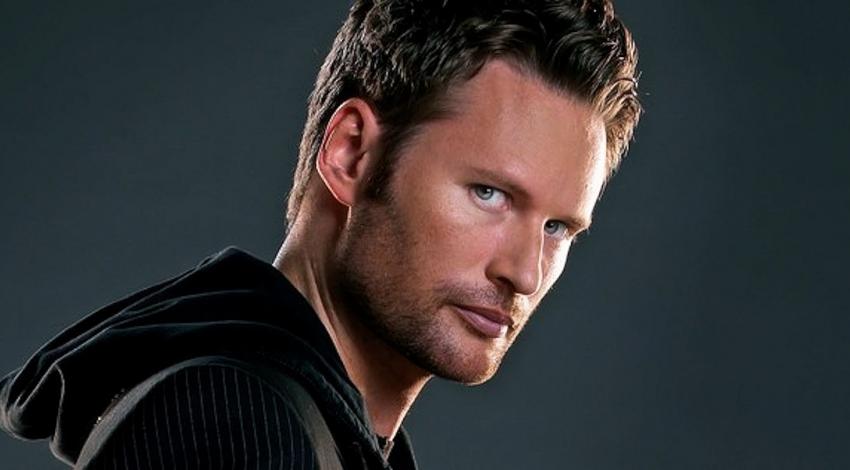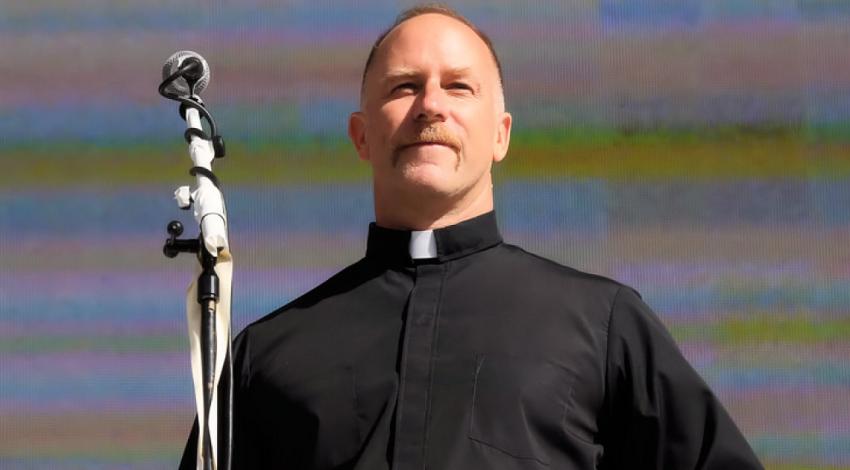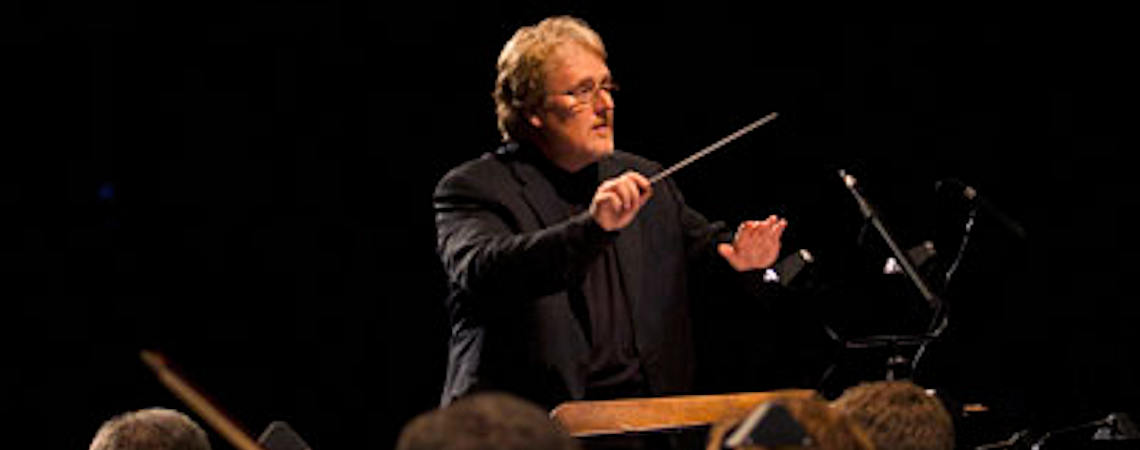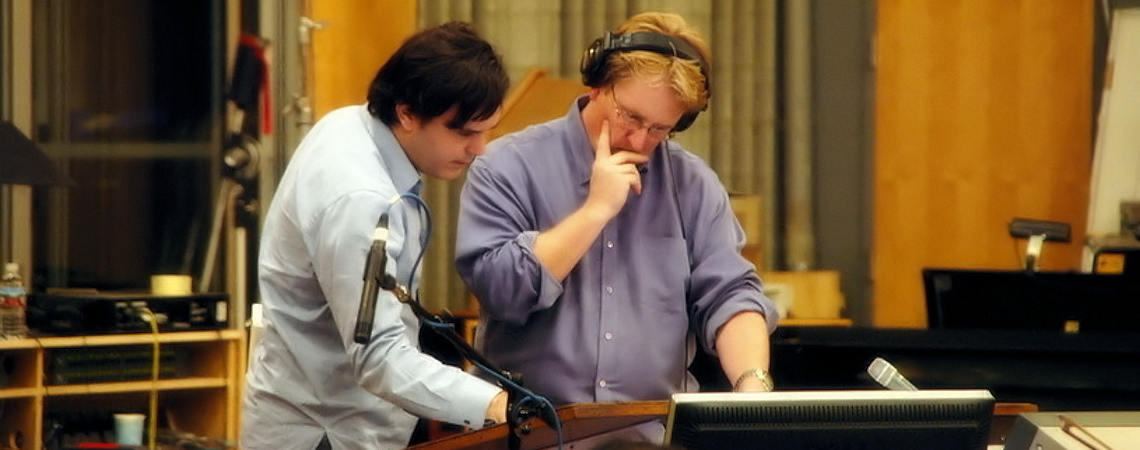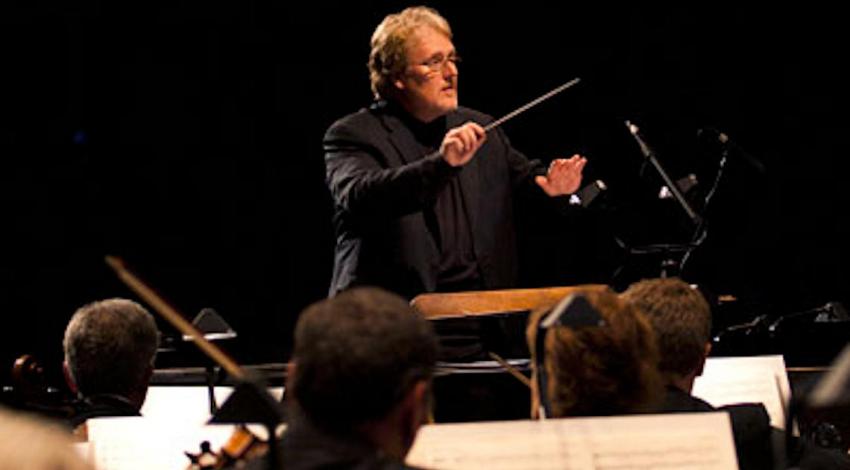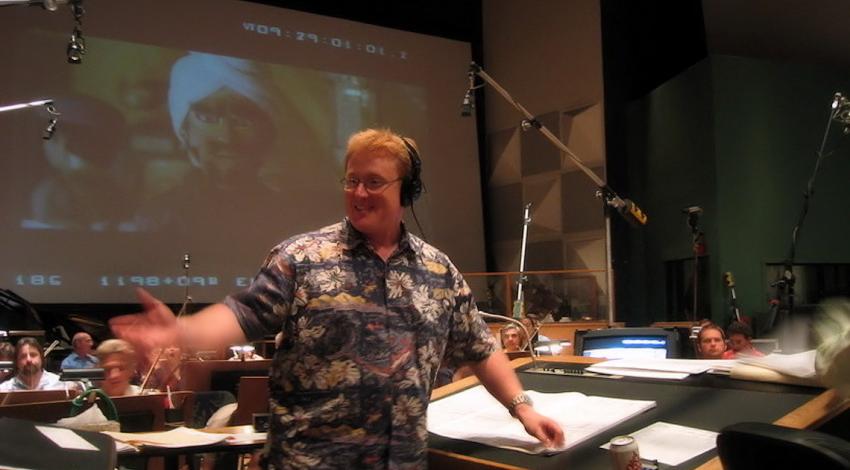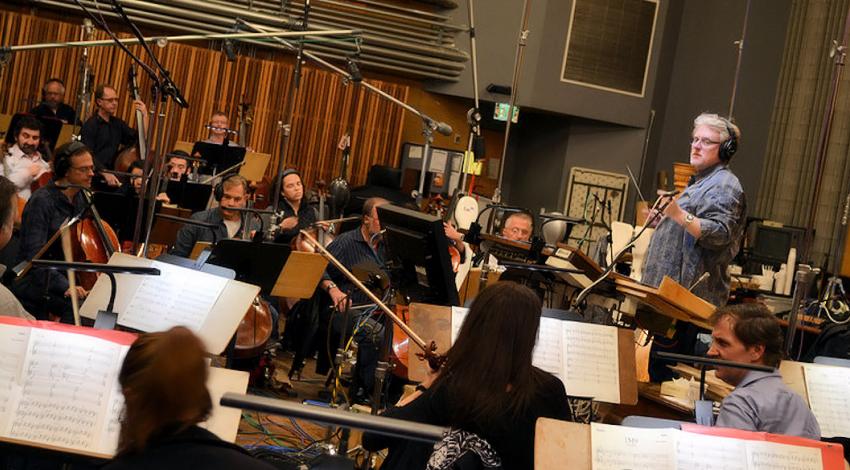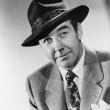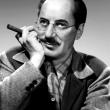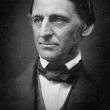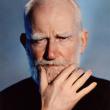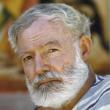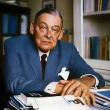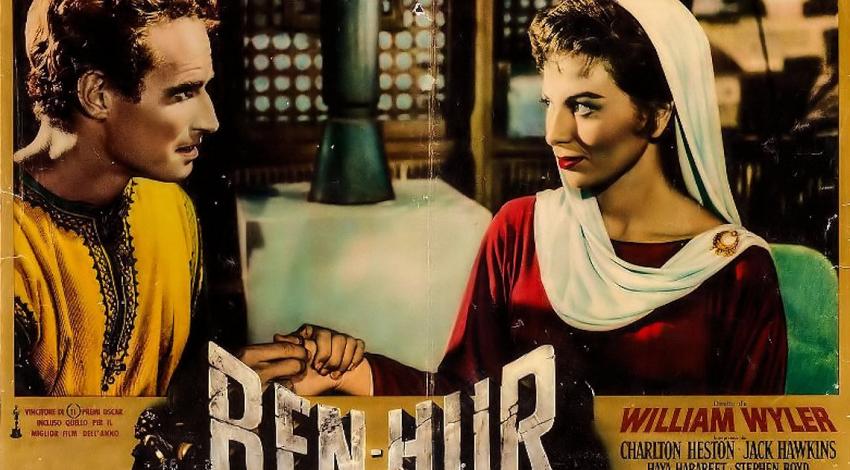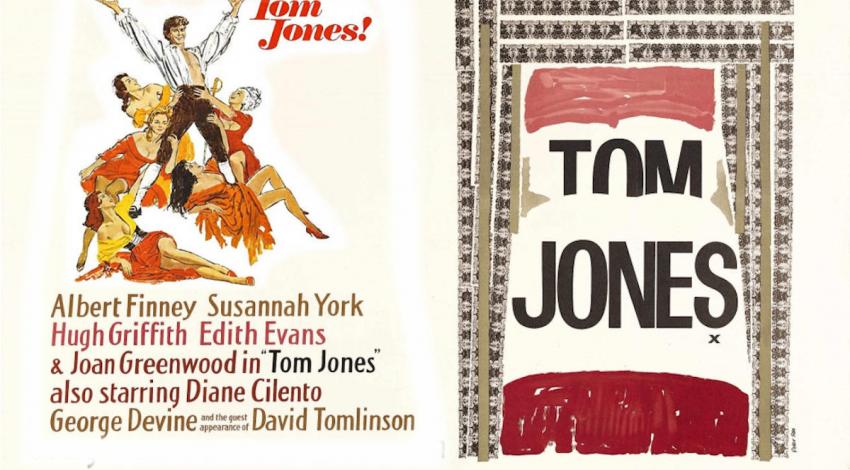Pete Anthony - "Keeping Up Tempo"

Pete Anthony is one of the top conductors and orchestrators in the film music industry working today. Collaborating with such top composers as Danny Elfman, James Newton Howard, Christopher Young, Marc Shaiman, and others, Pete has been involved in 100's of films in the past twenty six years. SoundtrackNet had an opportunity to catch up with Pete during a short but well-deserved break.
Pete Anthony | Conductor / Arranger
Let's just start from the beginning: what is your musical background?
I was primarily a composer. I have a degree in composition from Williams College, and then I went right into the film scoring program at USC. After that, I studied composition and orchestration privately. I've always played piano - poorly, I might add - and I used to be a fairly good trumpet player for about 14 years, until the end of college.
How did you get into orchestration?
quote-leftMy first exposure to the industry was working as a proofreader for other orchestrators. One of my early mentors was Patrick Russ, who at the time was very busy working with folks like Maurice Jarre, Elmer Bernstein, Michael Kamen, and others. So I studied with him and learned from him as we worked. At one point, Pat let me take a sketch he had already orchestrated and orchestrate it myself. So I took it home and did the work - then I compared it to what Pat had done, and listened to the final recording of the piece. I did that a number of times - he was a great mentor and teacher over several years.
Do orchestrators lend their own "voice" to a piece, depending on the detail of a sketch?
quote-leftAt times a composer will rely on the orchestrator to really fill something out, using a somewhat established vocabulary. At other times, the composer may know exactly what he wants and hand over a very complete sketch. But getting a complete sketch doesn't mean the orchestrator checks his brain at the door - you can get a very detailed sketch from a composer and hopefully still bring something of yourself to it. When you add to a piece as an orchestrator, you do not diminish the composer's idea or indicate any lack of ability on his part. What you're trying to do is think of the simplest ideas that can take what he's already done and bring it to a higher level. Most composers are appreciative of that - you're trying to take their music to a higher level. A composer writing out a sketch might not necessarily have the time to think out all of the details of all the parts of an orchestra.
If you have two different orchestrators working on the same sketch, how different might the end product be?
quote-leftYou don't often get to hear the exact same piece orchestrated by two different people, for comparison. But by and large, throughout a score with multiple orchestrators, you can begin to see how one orchestrator might handle similar material differently than someone else. At this level of the business, most everyone has chops and talent, and they know what they're doing. At this level, what you're hearing are differences in taste. One orchestrator might have cut his teeth listening to Debussy and Ravel, and likes to mix his colors and take a more impressionistic approach to a particular passage. Another orchestrator might prefer bolder strokes, influenced by Stravinsky or Penderecki - so the differences you'd hear are the differences in taste.
Working in Los Angeles, there are all sorts of folks with varying backgrounds. Some orchestrators have played in jazz groups their whole lives, and arranged for show bands - some have studied nothing but classical orchestration - but we all end up at the scoring session together. Sometimes you hear different orchestrators trying to bridge the gap: the conservatory-trained guy trying to do something in a Broadway showtunes style, or the guy who grew up doing casuals, studied orchestral literature on his own and is trying to do something more classical. The great thing about film music is that you can put these side-by-side in the same session, or even the same cue! You can have music that's modern, that's classical, that sounds like an 80's rock ballad, that sounds like Robin Hood, or that sounds like Altered States.
How do you feel modern technology (synthesizers, etc.) have helped in the art of orchestrating?
quote-leftThat's a difficult question to answer. More and more, composers are turning to synthesizers as a means of expression; this is an immutable trend for the industry. Although there are a few composers who still write out everything by hand, most of the time I am given a midi transcription and an audio demo for reference. If the composer writes a sketch by hand, there is very little doubt for the orchestrator as to what the composer has in mind, about what the composer is considering important to the music. With a midi transcription coupled with an audio demo, I find I can't trust the written sketch or the audio demo to tell me what is most important to the composer - I'm having to use other clues, from my knowledge of the composer's previous work or seeing the scene being scored, in order to really understand the music. There is a fundamental problem of translation: The devices that make a synth demo sound good, may have very little to do with what makes a real orchestra sound good. On the other hand, at times the opposite is true, and the audio demo makes the composer's wishes completely understandable!
The pit fall for inexperienced composers is when the tool impacts or defines the product. If you're writing things out by hand, you're more likely to take a simpler approach to what you write so you can get through a large quantity of work in a short amount of time (this can be a positive effect). If you're playing your music into a sequencer, you're more likely to play music that rolls off your fingers. It takes real understanding of the acoustic instruments to keep the synths sounding organic. To use electronics to effectively express acoustic music, it takes real knowledge of what an orchestra does.
Do the synth mockups back you into a corner?
quote-leftThey do and they don't - it depends. Someone like James Newton Howard, who has orchestrated his own scores and has traditional training, knows what an orchestra is doing - and so he plays in the parts that can go straight across to the score - he has solved the orchestration puzzle almost before the orchestrator starts working. At other times, other composers with equal training might just add things to a demo to make a director happy, knowing that what they are doing in the demo might not translate directly to the orchestra. That's an instance where the orchestrator can get into trouble - he has to make decisions about what is most important to the composer - he has to interpret from the printed sketch and the audio to arrive at some sonic approximation of the composer's demo.
What about scores that have a lot of electronic elements? How do you work with that?
quote-leftSometimes when I get a demo that has a lot of sampled effects and sounds that have been manipulated, edited, and reshaped, I will tell the composer we need a particular sample to be used in the final mix because we can't recreate that sound in the orchestra. As an orchestrator, I used to be really concerned about how to combine these worlds. I used to spend a lot more time on it than I do now. Now, it's a fairly simple principle for me: if the orchestra sounds good, and the synths sound good, the whole thing sounds good together.
So something like Elfman's Planet of the Apes is a good example...
quote-leftYes, Danny often works with elaborate electronic elements. He has Steve Bartek leading the orchestration team and Marc Mann recording and managing huge numbers of synth tracks. Danny, as well as James Newton Howard and John Debney, will pre-record elaborate synth tracks, and the sounds that work best with synths will generally live across to the final mix. They all know there's no point in recreating the things that work best with samples and synthesizers: Huge hits, percussion loops, ambient sounds and the like. They will take great sounding percussion loops for example, and add live instruments - or sometimes replace the loop entirely, or mix it up so you can't tell what's live and what's synth. An open microphone, hearing the depth of a room, is something lacking from most sampled sounds - they're usually too clean and close-miked. The interesting thing about the electronics is that, at times, adding one live element makes the whole track sound live. The ear is fooled.
What was your big break in the industry?
quote-leftThe first composer I ever worked with was Dan Foliart, who was working primarily in television. He was the first guy who was willing to give me a job. I started out, actually, helping him use his computer. I was tech support for a now-extinct program called Cue for the Macintosh that essentially laid out click tracks - much like Auricle does today. Dan got really busy - so I orchestrated a cue or two, and that went well - so I was able to orchestrate some more. I ended up working with him on two television shows over a few seasons, just helping him out. At the time, I was still studying orchestration and composition. The first film I worked on was with Daniel Licht, who introduced me to Christopher Young. I worked with Chris on Rapid Fire - he was just looking for consultation on a cue he'd written in a Chicago Blues style. Since I didn't know anything about that, I went out and did some research - the cue looked fine! Then he called me for Jennifer 8, which was the first big film I orchestrated. That was one of those examples where I took immaculate sketches and essentially copied them out onto the right sized score paper so the copyists could extract the individual parts. And then my first big job conducting was also with Chris, on Species. Before that I had done a little bit of studio conducting.
You're also known as one of the top conductors in the industry - how did you get into that? Were you trained to conduct?
quote-leftWell, it's something that I've done since the first day I played in a group in junior high school. From concert band to jazz ensemble - I did some musicals and shows in high school and college. I did it because I was usually the arranger and "organizer guy". I took a conducting class at USC, and then I studied privately and spent a lot of time observing other conductors - but I'm not a trained conductor in the classical sense.
The way I fell into it was that I had been working as an orchestrator - I never advertised myself as a conductor. But as the arranger and orchestrator, I was always there for the choir recordings. Generally speaking, in Hollywood, you record the choir after the orchestra has gone - it's quicker, more economical, and you can get better separation in sound, which is helpful in mixing. So the conductor would have left, because the musicians were gone - and so I'm there with the composer, the mixer, and the choir. Since I knew all the music, and had been there for all the scoring sessions, it was simpler for me to conduct the choir. So that's how I started studio conducting - by conducting choirs after movie sessions. And then by default, a few times a conductor wasn't available, my name started popping up.
So how did you get to work with all these top composers that you're working with today?
quote-leftIt was very lucky timing. Artie Kane, who is a legend in this business, has done every job, and done it well. He was conducting for Marc Shaiman, Danny Elfman, and James Newton Howard. As he got closer to retirement, he sent me in as a substitute on a few sessions when he couldn't be there. He was moving up to Washington State at that point - so it was less feasible for him to come down for smaller recording jobs. As he decided to live in Washington fulltime, and basically retire, I was lucky enough to be recommended by Artie and also by another friend and legend, contractor Sandy DeCrescent. So Artie and Sandy were instrumental in recommending me to many of my clients. In my work as a conductor, I've often ended up orchestrating for the composers, and as an orchestrator, I've ended up conducting.
Several of the composers I work with conduct their own stuff. Marco Beltrami and John Debney, for instance, are fine conductors on their own. On some projects I might conduct part or all of a score, because they'll want to be in the booth near the filmmakers in order to gauge reactions to their music as it is being recorded.
What is an average project like for you?
quote-leftAs the post schedules have become more compact, the composer's deadlines have gotten tighter and tighter. Generally speaking, the window of time that a project takes me is getting smaller. When I started in the early 1990s with Chris Young, we'd have 4-6 weeks working at a steady pace to get an orchestral score done. Now there may only be 10 days to orchestrate an entire score! So it's not one orchestrator working for 30 days, it's 3 orchestrators working for 10 days. Although a film is less of a time commitment today, the time involved is more intense.
With the shortened time to get things done, many composers are working with other people in getting their scores done. Hans Zimmer, for instance, doesn't make it a secret that he has help getting the music written. What do you think about that?
quote-leftIn the old days, there was a music department at the studios, and instead of one composer, there might be a main composer plus a few assistant composers helping to finish a score - and they all got credit as composers. In a way, on those films where he uses extra composers, Hans Zimmer has returned to a system that was already pretty well established. You can see the advantage of a staff of composers turning over an immense amount of music in a ridiculously short amount of time. It's an interesting idea to put on a coat and tie, go to an office, and write your music from 9-5. I can't picture that now! But the fellows I'm working with aren't working that way. The people I work with all do their own work.
You're still working on The Core - how long have you been working on that project?
quote-leftThat was and is an interesting project, because we've had rolling sessions. We'd have a session, then a week off, then another session, then 10 days off, then another session, than a week off, then two sessions.... This is actually less and less unusual - because as a film is being finishing, reels are being handed over one at a time - and we're scoring the reels as they are ready. I've worked on a few films like that. South Park was one; we would be recording music periodically as the film went back and forth between screenings and the editing room. If we are re-recording music because of changed picture, then this process can become very expensive.
I noticed at the Spider-Man scoring session a cue was changed on the fly - how often does that happen?
quote-leftWell, in that case, they were editing the movie right up to the end. I know Danny was looking at new versions of scenes he'd already written, and this for the first time at the scoring session! Needless to say, Danny was very quick on his feet to come up with spontaneous solutions to musical dilemmas he faced because of picture changes.
With any orchestra regardless of the material, the room, the environment, the mood of the people involved all impact the way the music is played. When a cue is played for the first time, it might sound pretty good - but I'll want to make some basic refinements from the podium, and the composer and orchestrator will have much more in-depth comments and feedback which I then relay to the players. And finally, of course, we have the film makers who usually have suggestions about the drama of the music which all of us musicians try to effectively translate into musical terms.
So basic changes are common, but major changes are less common these days which leads to the issue of "synth mock-ups:"
I find on almost every project that the filmmakers (directors, producers, studio execs, etc.) want to hear their music before it's recorded with an orchestra. The composer needs to use synths and samplers to "mock up" what the final music might sound like. The drag about that is that it takes a lot of time and expensive equipment to make machines sound like an orchestra - in my experience, the film makers are expecting to hear a demo with excellent production value that could dropped right into the film. The good thing about this process is that there are fewer surprises on the recording stage with the orchestra sitting there. In the old days, composers would play the music on a piano, and say "but this is going to sound entirely different when the orchestra plays it" and the filmmakers would be forced to make a leap of faith. With mock-ups, at least, there are fewer surprises and fewer scores are thrown out during or after the process of recording.
You also have a little experience as a composer - what were those projects?
quote-leftI've had two small projects where the composer left the project with very little time left - so there I was! One was Love Songs for Showtime, and the other project was for USA Cable and Showtime called Run For The Dream. Dream was on cable, but it was primarily a theatrical film that was shown in Atlanta around the 1996 Olympics.
Would you want to explore that side a bit more?
quote-leftSomeday, yes. I don't have a burning desire to do that right now. I've been keeping very busy and engaged in what I'm doing, and I anticipate I'll keep doing this gig. It's a fun job for me - I get to work with a lot of great composers and musicians, and I get to work a lot - that's important for me. I'm not very good at sitting around! And unfortunately for a composer who would be starting out - like I would be - it would involve a lot of sitting-around time. If you've got the drive to do it, then you can survive that - I'm concerned I would be a little distraught to be waiting for work.
Have you been asked to write a cue for a composer? How do you get your creative outlet?
quote-leftI've been asked to help finish some cues on a score a few times and each time it was a very straight up deal. I got credit - even signed a composer's agreement, and I got paid for the composition separately from the orchestration.
For me as an orchestrator, the creative challenge is in making an arrangement that plays down well - it should fit like a glove with the orchestra. I like when there's a good flow to an arrangement as the music as it is passed around the orchestra in a seamless way. I also enjoy the performance of the music. When I'm conducting with a click track, it's less of a musical high for me; but then there are those few times where I get to add my own emotion to a cue - scenes without insistent rhythms or pre-recorded tracks - I can turn the click off and have an orchestra play in a timeless way. That's a lot of fun - it's more of a performance for me, like conducting a concert.
Have you conducted a live concert?
quote-leftI worked on the Oscars in 2000. The producers of the show that year wanted to have a more "contemporary" ensemble so they got record producer Don Was and a rhythm section to play the bulk of the live music. But host Billy Crystal and composer Marc Shaiman (who always works closely with Billy) insisted on having the traditional orchestra for certain parts of the show. So I conducted the orchestra for Billy's walk-on, his medley, and a few other bits throughout the show.
I also conducted the string orchestra for the band Creed at the VH-1 Music video awards and for Stewart Copland at a concert in L.A. I would like to get more involved in live performance of some modern classical music - maybe my own stuff!
So you still compose a little on the side?
quote-leftYes, I need to - I have a few ideas running around my head. I've got a little chamber piece percolating that I need to muster up the discipline to write out!
What are some of the recent projects you've been involved in?
quote-leftWell, Treasure Planet is out now - we did it months ago and it was a treat to revisit it - it sounds as good as I remember from the sessions. The order on which I work on projects is different than the order in which they are released. Recently I have worked on Mr. Deeds with Teddy Castelluci, Signs with James Newton Howard, The Bourne Identity with John Powell, and Spider-Man with Danny Elfman. I also orchestrated and conducted on Spy Kids 2 for John Debney. (Spy Kids was one of the fastest turnarounds I've ever seen - from the scoring session to release was about six weeks.)
What are your thoughts on the Los Angeles musicians?
quote-leftThe musicians here are incredible, and there is an immediate rapport for composers with the players - the players know what we're looking for in film music. You can find good orchestras in other locations, but you can't get a good orchestra that can also do ten other things really well. Here you've got the fabulous orchestra, but if you need someone to play funk bass, they're right there! If you need someone to play a country hoe-down on the cello, no problem - that guy can do it! If you need someone to play Klezmer-style clarinet - that guy is already sitting there, and knows how to do that. If you need someone to play some exotic woodwind instrument, in tune, while reading Western notation - no problem! There is a player already sitting in your orchestra that knows how to do anything that comes up. The wealth and breadth of talent and experience amongst the players is the amazing thing about Los Angeles.
What is it like working with James Newton Howard?
quote-leftIt's the best gig in music. James is one of the most passionate composers around - he raises the bar on each score. Signs in particular had a fabulous personality. It has simple ideas that are put together brilliantly. I was able to orchestrate some of Signs - I do a little bit, it seems, on every picture. Brad Dechter and Jeff Atmajian are the primary orchestrators and the best in the business - but I'm always lurking in the background. (laughs) We scored The Emperor's Club (formerly known as The Palace Thief), just after 9/11. It was very emotional, at the time, for a number of reasons. But it's a beautiful score, recorded at Sony with a small orchestra. I almost forgot about it - it's been so long! In December I am working with James on Dreamcatcher. It's a big project, with big music - I'm really looking forward to it.
Do you orchestrate much for Danny Elfman?
quote-leftI don't usually orchestrate for Danny; Steve Bartek, Edgardo Simone, Dave Slonaker, Marc Mann, and Mark McKenzie are the main team. I have helped Steve finish an emergency rewrite during a lunch break, but by and large I just conduct for Danny. Red Dragon was the most recent - Danny did a fabulous job on that - he always comes with something that knocks everybody out.
When will you be done with The Core?
quote-leftRight now we've got one more session in January; the film comes out in March. They changed the 7th reel of the film, and we didn't get to do too much with the previous version, so we're waiting on the final picture - then we'll finish it. In the meantime, Chris has written this fantastic score for a 103-piece orchestra and choir. The music is huge and dramatic - people are heroic and tragic in this film. Chris's score goes from huge-action to rip-your-heart-out emotional. I orchestrated about a third of it. The other orchestrators were Jon Kull, Bruce Babcock, Frank Bennett, and Bill Liston. Somehow we got this huge orchestra squeezed into Stage M at Paramount. The B-orchestra was "only" about 80-pieces - it's hardly a small B-orchestra! Most of the music is fairly active.
Chris has worked with director Jon Amiel on a few other projects. Their relationship is interesting for me to watch, since Jon was a musician himself, and so he's familiar with the vocabulary to speak specifically about music, and he ends up directing Chris as if he were an actor. If Jon wants changes, he's very good at getting Chris to see it his way, and Chris is adept at understanding what Jon wants - so it's really fun to watch them work. We once recorded a cue, which I thought was great, but Jon wanted changes on it - and Chris immediately understood what Jon wanted, and what they came up with was entirely different from the original - but it worked great!
So you get to observe a lot....
quote-leftI am a fly on the wall. As tempted as I may be, I'm going to try to avoid writing an exposé! Ain't gonna happen! (laughs)
About: As of this article's original publication, Pete Anthony has continued as one of the busiest conductors and orchestrators in the Los Angeles music industry. In his 25-plus years in the business, Pete has worked on hundreds of feature films with Hollywood's top composers, including James Newton Howard, Danny Elfman, John Powell, Marco Beltrami, Marc Shaiman, John Debney, Chris Bacon, Teddy Shapiro and Christopher Young. Pete brings to his job vast experience in the art of orchestration, dedication to the composer's intent, respect for his musician colleagues, and a spirit of collaboration with composer and filmmakers. On the podium, Pete is known for his discerning ear and quick wit.
Republished from:
Soundtrack.net
The Art of film and Television Music
Release date: 12/14/2002
All Rights Reserved
Special thanks to Pete Anthony, Christopher Young and Josh Jarry.
Some photos were sourced from: Scoring Sessions.com







